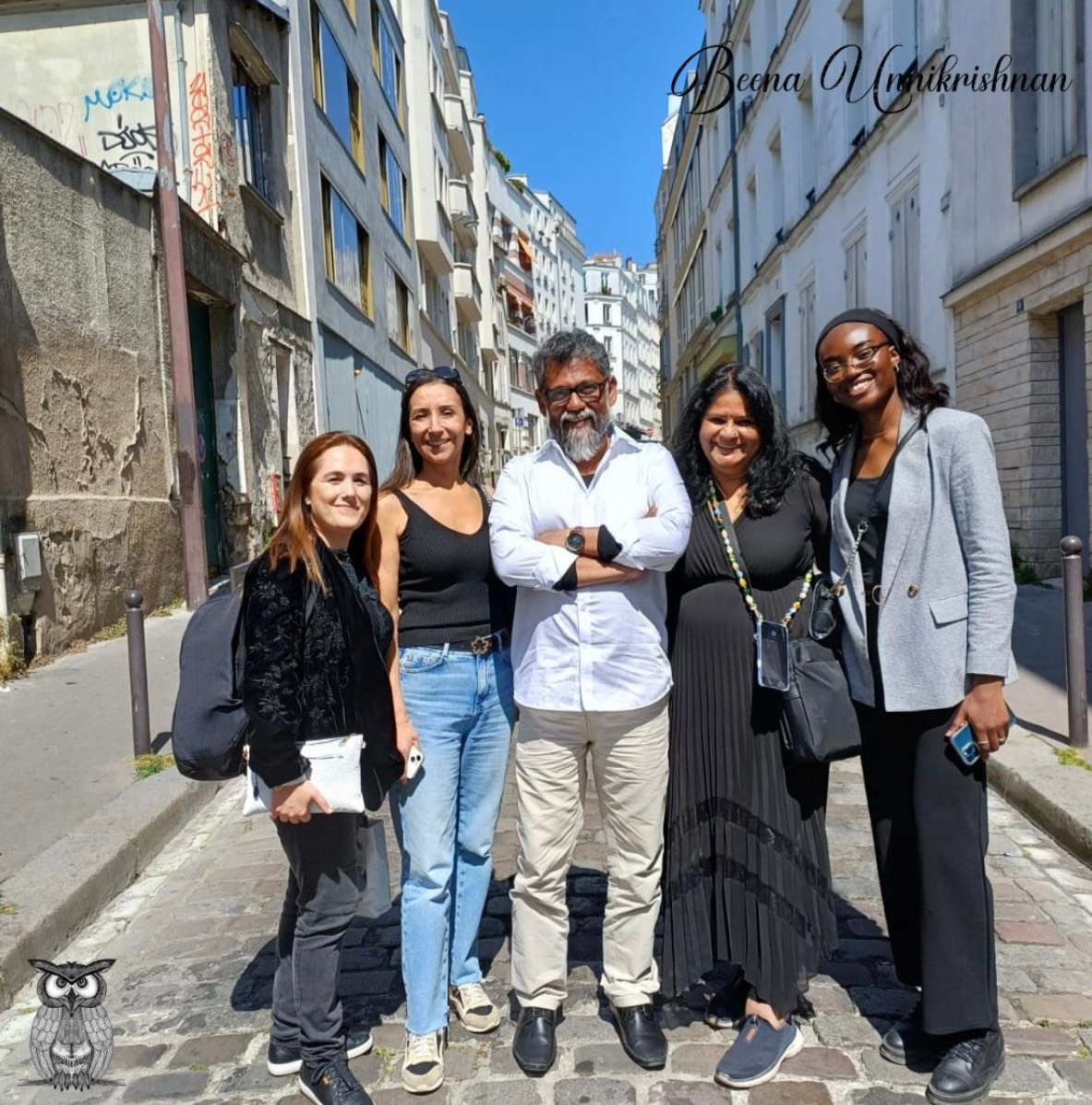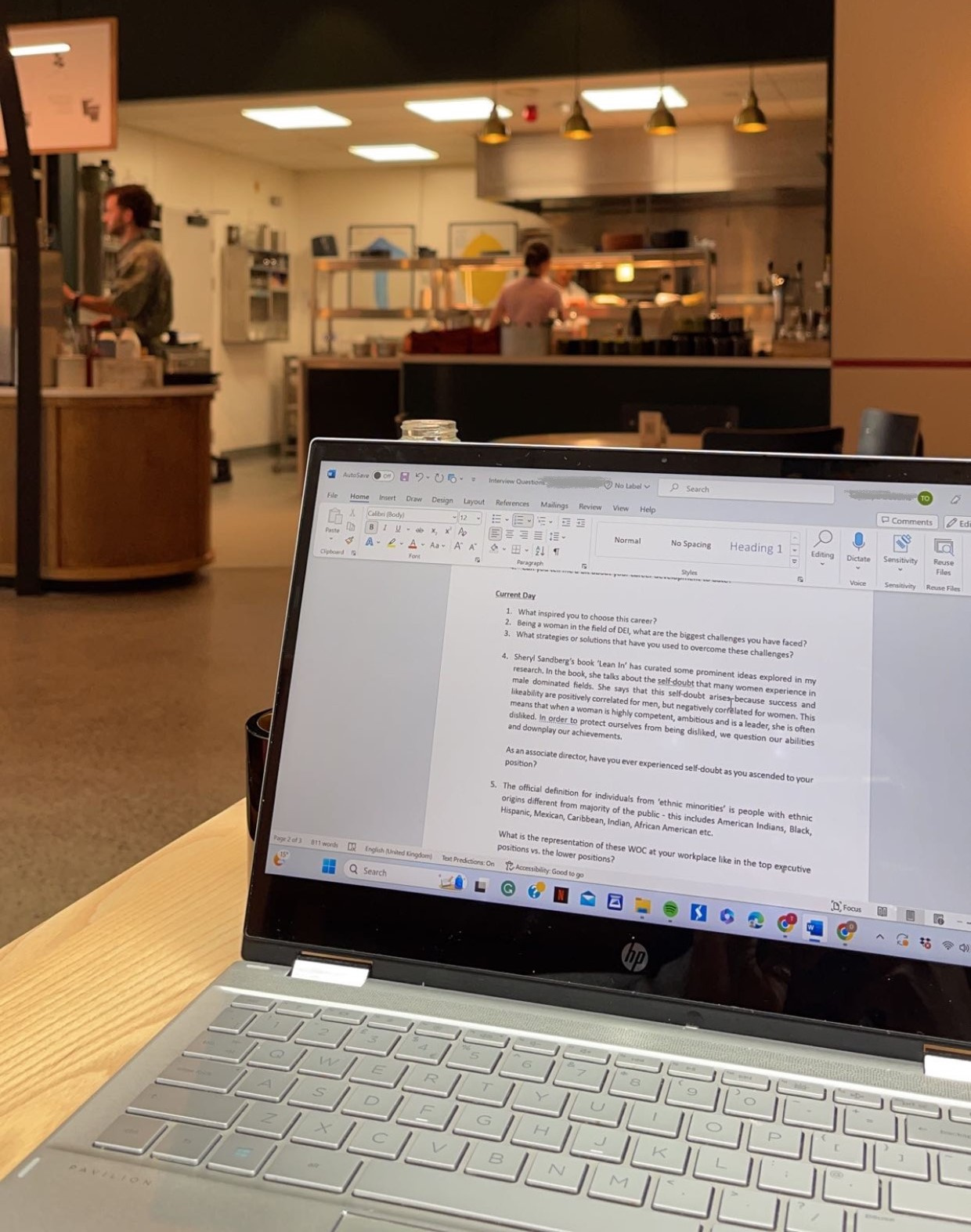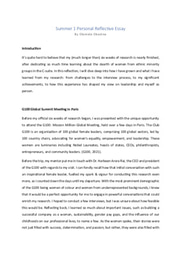Lessons from my Summer 1 Research Project
Embarking on this journey of independent research has truly been an enlightening experience. I have learned so much, not just about academic research, but also about myself as an individual. However, it’s no surprise that undertaking research on a highly complex topic brought along just as many challenges, as it did moments of inspiration. My exploration into the dearth of women from ethnic minority groups in the C-suite and gender inequality on corporate boards naturally dealt with sensitive topics including workplace discrimination, systematic oppression, and institutional racism, which also created some additional challenges, that I did not expect. In this blog post, I will reflect upon the three biggest lessons that I learned as I navigated my way through my (much longer than) six-week research journey.
Lesson 1: Research is a Big Puzzle
The first lesson that I learned is that conducting research is similar to solving that 100-piece puzzle that you randomly got for Christmas one year. You spend weeks, and eventually months, trying to figure out where each piece fits, in hopes of bringing a picture to life. However, the difference, is that independent research is much more difficult as you are essentially given an empty box, with no pieces. It is your job to find those missing components, before embarking on the taxing quest of piecing everything together. But here comes another twist- you aren’t told whether your puzzle should have 100, 200, or 1,000 pieces, leaving it up to you and your intuition to figure this out too. In this way, this research project enabled me to become more comfortable with trusting my own instincts. Every piece of information that I gathered, whether it was from academic papers or interviews, was an important component of my puzzle. Once I had reached the point of collecting enough accurate data, I was faced with the task of fitting them together like a puzzle. Some pieces fit perfectly, whilst others appeared to be for a different puzzle altogether. From week one, I believed that analysing data was the most important aspect of research. However, by week two, I quickly realised that it is, in fact, identifying useful patterns from various data sources and finding ways to connect this data, that is even more vital to paint a holistic picture. Therefore, I took great care when creating my puzzle to capture the most accurate picture of many organizations’ lack of an intersectional approach to diversity management, which trust me... is no easy task.
Lesson 2: Research Requires Self-Reflection
Another critical lesson I learned was the power of self-reflection. When we were told during the leadership days that we would need to do weekly reflections, I believed that the purpose of this was solely to aid the final reflection paper. Looking back, I now understand that it served a much greater purpose! This constant cycle of self-reflection enabled me to assess my actions, beliefs, and perspectives. More importantly, it enabled me to challenge my beliefs. I became open to changing my perspective and embracing new ideas, even when these new ideas presented themselves as contradictions to my original hypotheses. For instance, throughout college, I have always believed I could take on an immense workload with ease..(shoutout to Tony Robbins for instilling this in my brain). However, unlike with college assignments, you must teach yourself all the topics and concepts and I had completely underestimated how much extra work this would be, on top of writing up the research and interview findings. So, during my weekly Sunday night reflection in week 4, I noticed a recurring theme: that I did not finish all the work that I had planned for that week. I always felt extremely frustrated about this. Writing it down pushed me to reflect on the causes of this issue and why it evolved as a pattern. This forced me to challenge my beliefs about myself. I had to think creatively about a new approach to overcome this issue which was difficult but very rewarding. This personal growth would not have occurred without the power of self-reflection and awareness.
Lesson 3: Value is Derived from Making Personal Connections
The value-add referred to here, doesn’t just relate to the research paper, but it also refers to the value added to you as an individual, from having deep and meaningful conversations during interviews. Now, I truly believe that the power of personal connection is not to be underestimated. One of my most prominent deliverables was to find the most successful strategies to overcome the barriers faced by women from ethnic minority groups in ascending to top-level management teams. However, I quickly realized that statistics and online articles alone would not be sufficient to embrace the full scope of this issue, amongst others. To develop a deep understanding of the mental and external challenges faced by women of colour in business, I had to develop connections with real women who had lived these experiences. Therefore, for me, the interview process was a very prominent aspect of my research. I was forced to ask tough questions that touched on some sensitive topics which I found was extremely uncomfortable to do. However, I knew that if I wanted to deliver meaningful change, I needed to uncover these hard truths, so that I could avoid painting an overly rosy picture of the issues at hand. To my surprise, I was commended by several people for asking these tough questions, as women are often forced to suppress their true feelings, to avoid bringing light to negative experiences. But negative experiences are simply a part of life – they help us to learn, grow, and appreciate the positives even more. So, this is another lesson actually – don’t be afraid to ask tough (but respectful) questions! I loved the interview aspect, as I always felt very inspired by the conversations, which were filled with perseverance, tenacity, and determination. This didn’t just enrich my research, but it also motivated me on a personal level to achieve my full potential in all my life’s pursuits. I was even lucky enough to find a mentor for my career development through this!
Conclusion
Overall, my research journey was not just an academic pursuit, but it was one that enabled me to truly grow as an individual. These three lessons are just a few of the many that I learned. I am so grateful to my supervisors and to have been given this incredible opportunity by the amazing Laidlaw co-ordinators at Trinity. This research is just the beginning of my journey to make a real impact in the field of gender and racial parity!




Please sign in
If you are a registered user on Laidlaw Scholars Network, please sign in